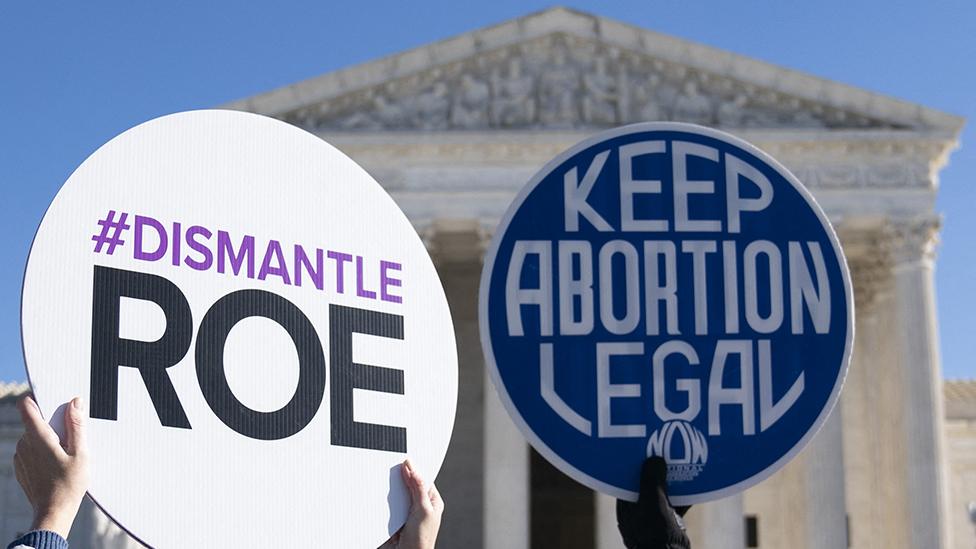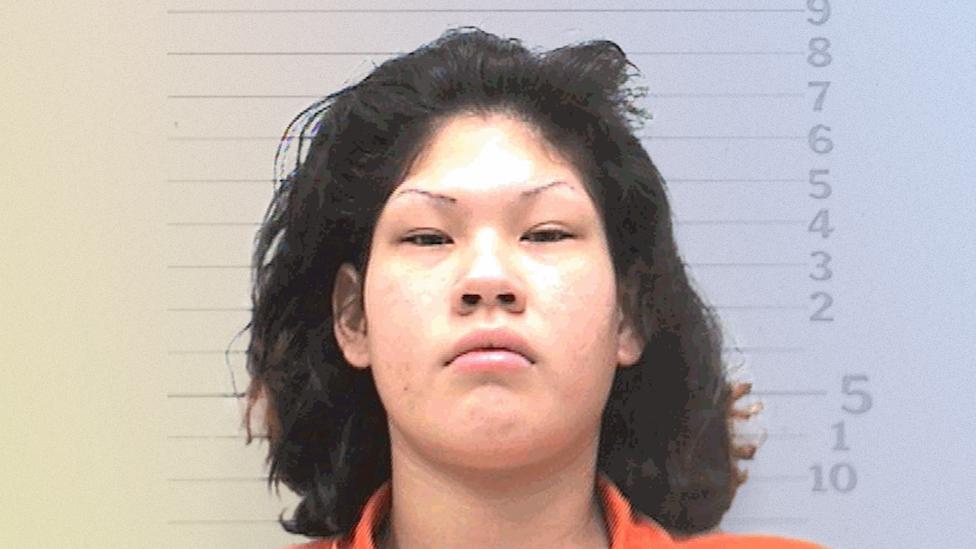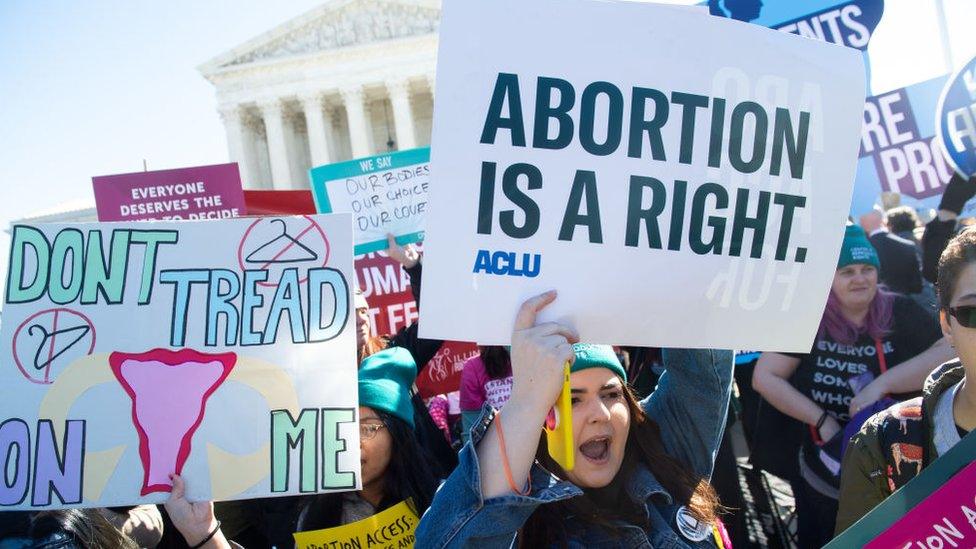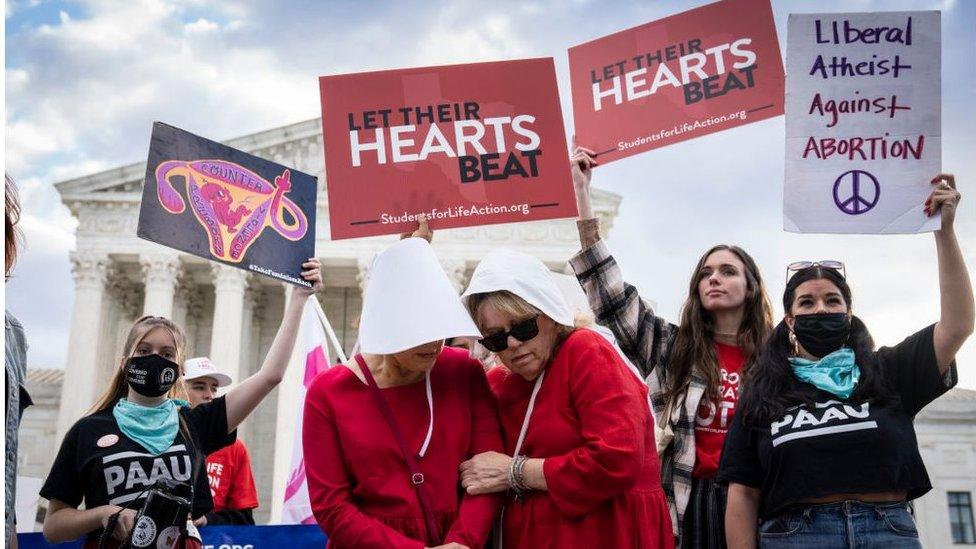What happens if Roe v Wade is overturned by Supreme Court ruling
- Published


Women living in about half of all US states could soon lose access to abortion, according to a leaked Supreme Court document.
A draft opinion from Justice Samuel Alito said the majority of the court's judges favoured overturning the ruling known as Roe v Wade which in 1973 established a woman's right to an abortion.
The prospect that nearly 50 years later this nationwide protection could be eliminated has dismayed pro-choice activists but cheered opponents of abortion.
The court's final ruling is due at the end of June or the start of July.
What will happen if Roe v Wade is overturned?
Abortion will not immediately become illegal nationwide.
Instead it would be up to each state to decide how much access women living there would have to abortion.
About half of the 50 US states will move to ban abortions within weeks, many immediately.
But other states will continue to provide access, not just for women in their state but for those living in states where it will be banned.
What states will ban abortions?
There are 13 states that have so-called trigger laws in place, which would lead to an immediate ban if the Supreme Court rules to overturn Roe v Wade.
They are Arkansas, Idaho, Kentucky, Louisiana, Mississippi, Missouri, North Dakota, South Dakota, Tennessee, Utah, Texas, Oklahoma, and Wyoming.
Another dozen or so may move quickly to ban or severely limit access, says the Guttmacher Institute, a pro-choice group. It estimates 36 million women of reproductive age would live in states without abortion access.
It would most affect poor women and those from ethnic minorities, says the institute.
These states are mostly in the south and west, which means some women may have to travel long distances to find a clinic.
What does the US public think about Roe v Wade?
According to a survey by the Pew Research Center conducted in March 2022, 61% of Americans say abortion should be legal in all or most circumstances, external, though support falls sharply for allowing the procedure beyond the first trimester of pregnancy.
Many opponents of legal abortion say it should be legal in some circumstances.
Similar figures were reflected by CBS News in 2021, when people were asked specifically about overturning Roe v Wade.
In that poll, 62% of those asked said they wanted it kept in place and only 38% said they wanted it struck down.
Why is this all happening now?
The Supreme Court has been asked to rule on a Mississippi law that challenges Roe v Wade.
Watch: How a Mississippi challenge could upend abortion rights
The court is made up of nine justices who serve on the bench for life.
President Donald Trump appointed three during his presidency, when vacancies on the court came up.
That changed the political leaning of the court to one that was more sceptical about Roe v Wade and more supportive of restricting access to abortions.
All three of Trump's appointees reportedly voted to overturn.
At the same time, many Republican states around the country have been focusing their attention in recent years on bringing in more restrictive laws.


A state's 'hostility' is based on different measures, including how many clinic visits are required to obtain an abortion

Who leaked the Supreme Court draft opinion?
It is very rare that rulings made by the Supreme Court are made public ahead of time, although it did happen with the historic 1973 ruling at the centre of this case.
The document, published by the Politico website, has not been verified by the BBC but experts who follow the court closely have said they think it is authentic.
Only a handful of people have access to decisions before they become public. And draft opinions can change.
- Published12 November 2021

- Published28 May 2021

- Published1 November 2021
